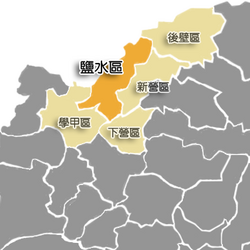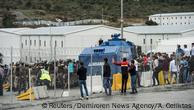Munich (German: München) is the capital and largest city of the German state of Bavaria, on the banks of River Isar north of the Bavarian Alps. Munich is the third largest city in Germany, after Berlin and Hamburg and the 12th biggest city of the European Union with a population of above 1.5 million. The Munich Metropolitan Region is home to 5.8 million people. The city is a major center of art, advanced technologies, finance, publishing, culture, innovation, education, business and tourism in Germany and Europe and enjoys a very high standard and quality of living, reaching in Germany and worldwide according to the 2015 Mercer survey. According to the Globalization and World Rankings Research Institute Munich is considered a alpha- world city, as of 2015.
The name of the city is derived from the Old/Middle High German term Munichen, meaning "by the monks". It derives from the monks of the Benedictine order who ran a monastery at the place that was later to become the Old Town of Munich; hence the monk depicted on the city's coat of arms. Munich was first mentioned in 1158. From 1255 the city was seat of the Bavarian Dukes. Black and gold—the colours of the Holy Roman Empire—have been the city's official colours since the time of Ludwig the Bavarian, when it was an imperial residence. Following a final reunification of the Wittelsbachian Duchy of Bavaria, previously divided and sub-divided for more than 200 years, the town became the country's sole capital in 1506. Catholic Munich was a cultural stronghold of the Counter-Reformation and a political point of divergence during the resulting Thirty Years' War, but remained physically untouched despite an occupation by the Protestant Swedes; as the townsfolk would rather open the gates of their town than risk siege and almost inevitable destruction. Like wide parts of the Holy Roman Empire, the area recovered slowly economically.
Having evolved from a duchy's capital into that of an electorate (1623), and later a sovereign kingdom (1806), Munich has been a major European centre of arts, architecture, culture and science since the early 19th century, heavily sponsored by the Bavarian monarchs. In 1918, during the German Revolution, the ruling house of Wittelsbach, which governed Bavaria since 1180, was forced to abdicate in Munich and a short-living socialist republic was declared. In the 1920s, Munich became home to several political factions, among them the NSDAP, which was founded in the city in 1920. Though the first attempt of the Nazi movement to overtake the German government in 1923 with the Beer Hall Putsch, which was stopped by the Bavarian police in Munich with gunfire, the Nazis declared the city after their rise to power to be Hauptstadt der Bewegung (lit.: "Capital of the movement"). During World War II, Munich was heavily bombed and more than 50% of the entire city and up to 90% of the historic centre were destroyed.
The post war period was characterized by American occupation till 1949 and a strong increase of population and economic power during the years of the Wirtschaftswunder (lit.: economic miracle) after 1949. Unlike many other German cities, which were heavily bombed and destroyed during World War II, Munich rebuilt most of its traditional cityscape and added a modern face to the city with the Olympic Stadium, while hosting the 1972 Summer Olympics. Especially since the 1980s, Munich and the entire surrounding region was characterized by a strong economic growth, the location of high-tech industries and scientific institutions, very low unemployment rates and a strong influx of people. The city is home to major corporations like BMW, Siemens, MAN, Linde, Allianz, MunichRE as well as many small and medium-sized companies.
Munich is home to many national and international authorities, major universities, major museums and theaters. Its numerous architectural attractions, international sports events, exhibitions, conferences and Oktoberfest attract considerable tourism. Munich is one of the most prosperous and fastest growing cities in Germany. It is a top-ranked destination for migration and expatriate location, despite being the municipality with the highest density of population (4,500 inh. per km²) in Germany. Munich nowadays hosts more than 530.000 people of international background, making up 37,7% of the entire population.
























